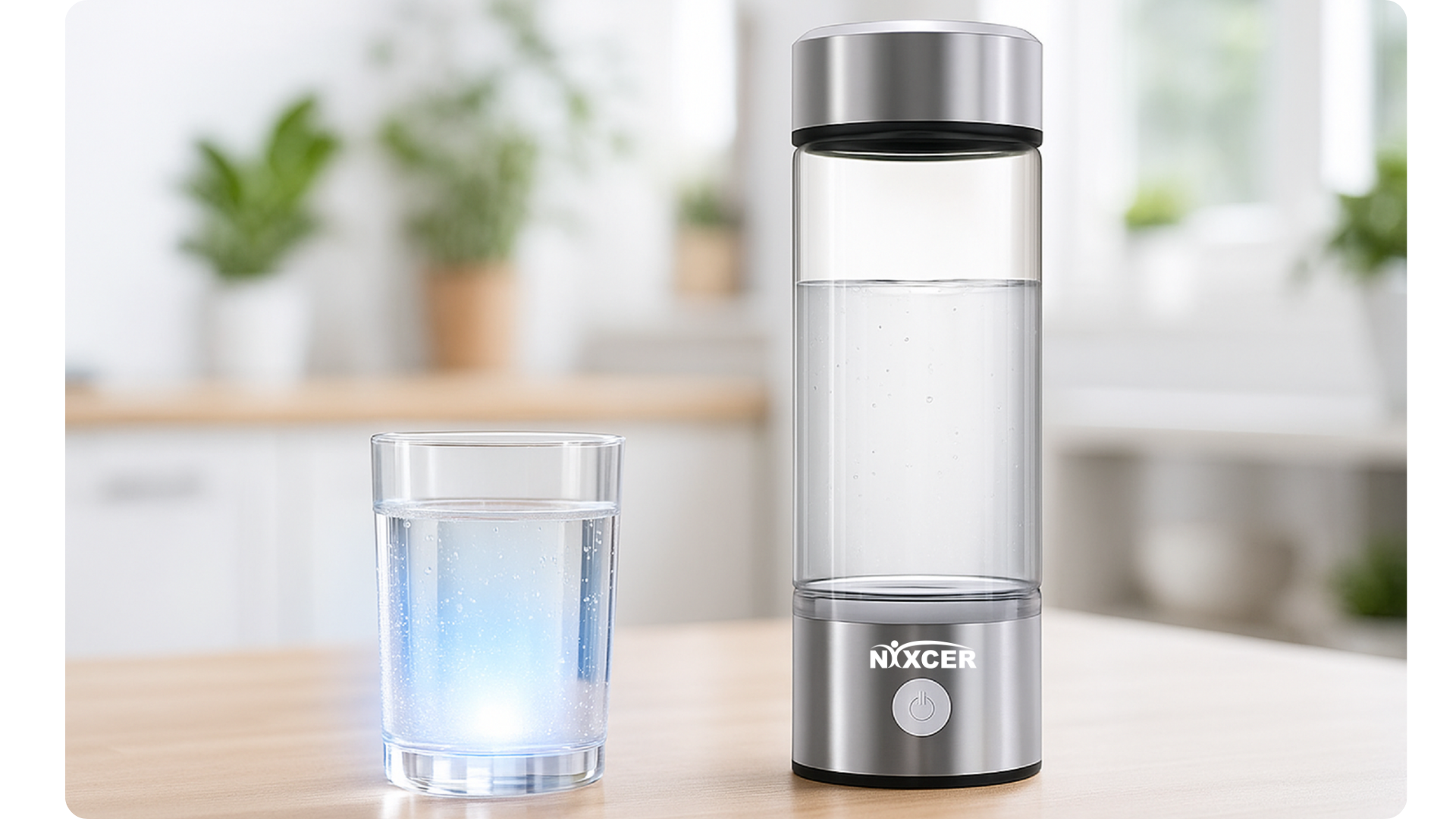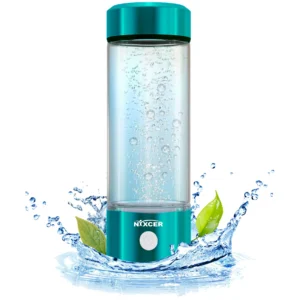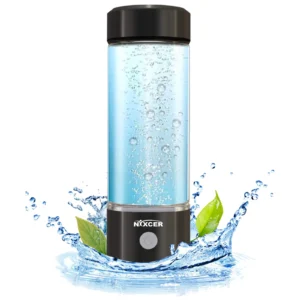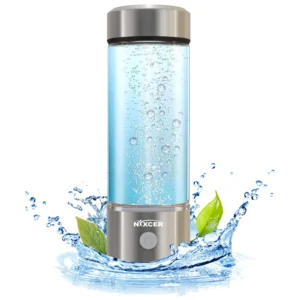Free Shipping All Over USA
Free Shipping All Over USA

Hydrogen water has gained popularity for its potential health benefits, particularly for its antioxidant and anti-inflammatory properties. A common question is: how long does hydrogen actually stay in water?
This guide explains hydrogen retention and what affects its stability. It also covers storage methods and tips for enjoying hydrogen-rich water. This is especially useful when using devices like the Nixcer Hydrogen Water Bottle.
Hydrogen molecules (H₂) are highly volatile and escape water easily, especially when exposed to air or heat. Studies show that in open containers, most hydrogen dissipates within 1–2 hours. In sealed bottles opened occasionally, hydrogen levels may last 3–5 hours. Completely airtight storage with no air gaps can preserve hydrogen for up to 1–2 weeks, though gradual loss still occurs.
You can use a portable hydrogen water bottle. The one from Nixcer is a good option. It creates fresh hydrogen-rich water whenever you need it. This ensures you get the best levels at the right time.
| Storage Condition | Estimated Retention Time | Notes |
| Open glass/container | 1–2 hours | Most lost within 1 hour |
| Sealed insulated bottle (opened occasionally) | 3–5 hours | Highest in first 2 hours |
| Airtight container (no headspace, never opened) | Up to 2 weeks | ~0.1 ppm daily loss |
| Refrigerated sealed container | 1–7 days | Slower loss due to cooling |
| Commercial pressurized can (unopened) | Several months | Minimal loss until opened |
To maximize hydrogen retention:
A Nixcer Portable Hydrogen Water Bottle lets you make fresh hydrogen water anywhere. This reduces the need for long storage.
Hydrogen water is most effective when consumed fresh. Research suggests potential benefits such as:
While research is still developing, fresh consumption ensures you maximize these potential benefits.
Hydrogen in water begins escaping immediately after infusion. In open containers, it usually lasts 1 to 2 hours. In airtight and refrigerated conditions, it can last for days or even weeks. For maximum benefit, consume hydrogen-rich water as fresh as possible and follow proper storage practices.



Share Article:

The Ultimate Hydrogen Water Bottle for Health & Wellness
Copyright © 2025 Nixcer